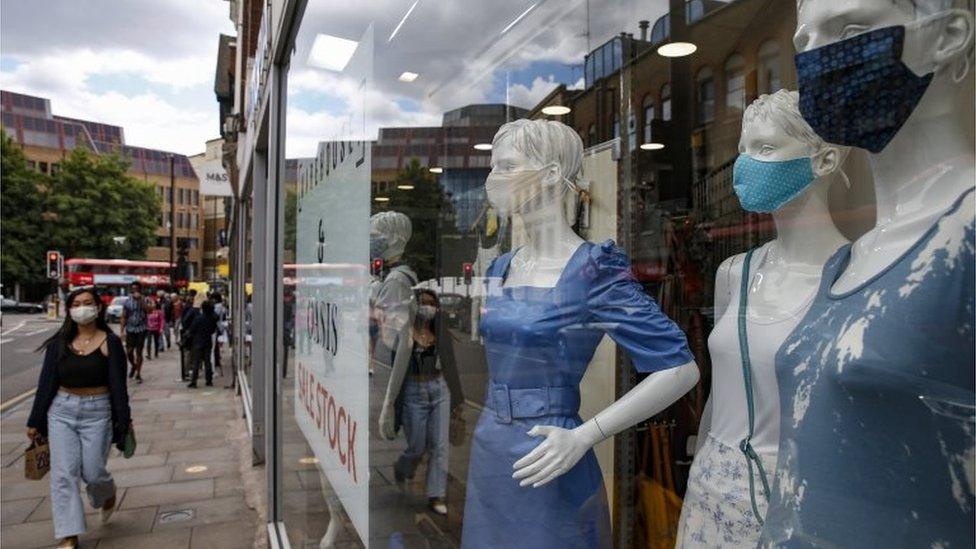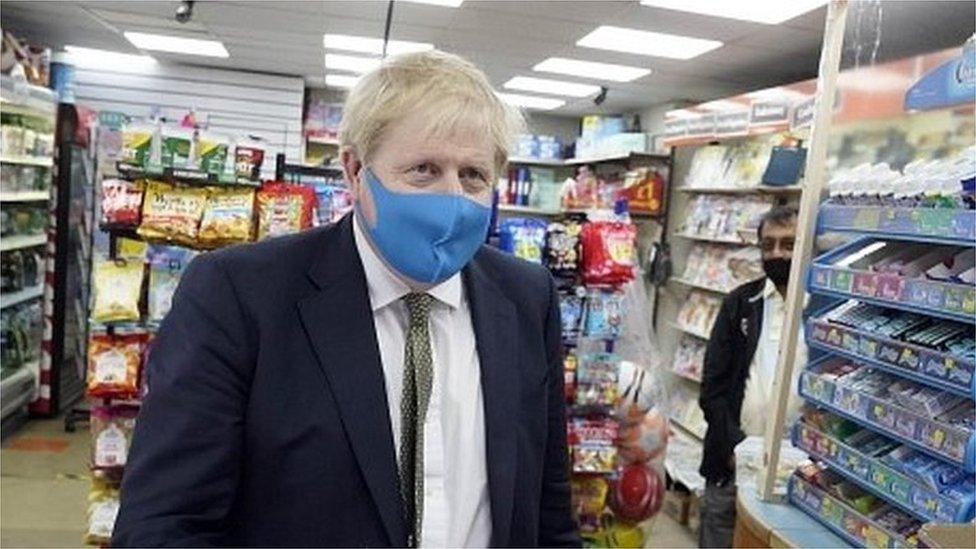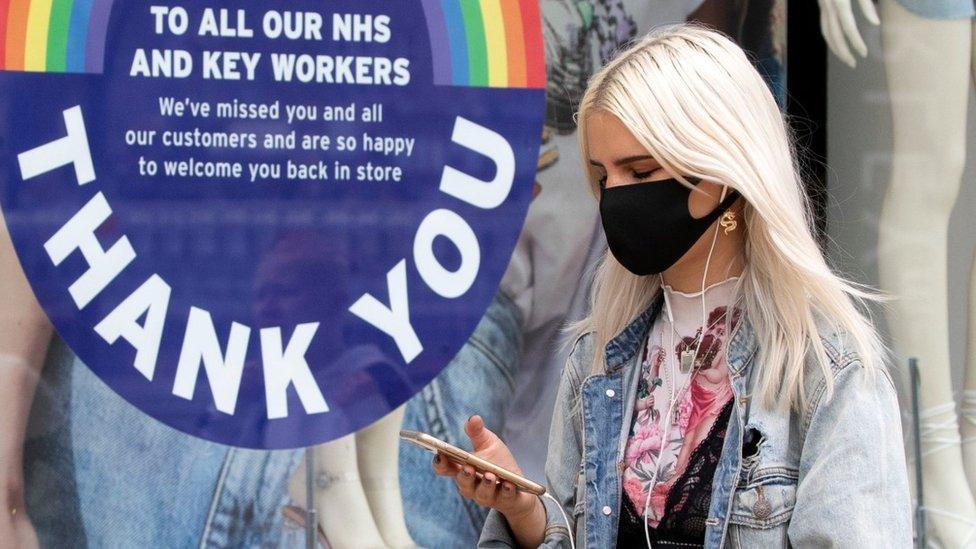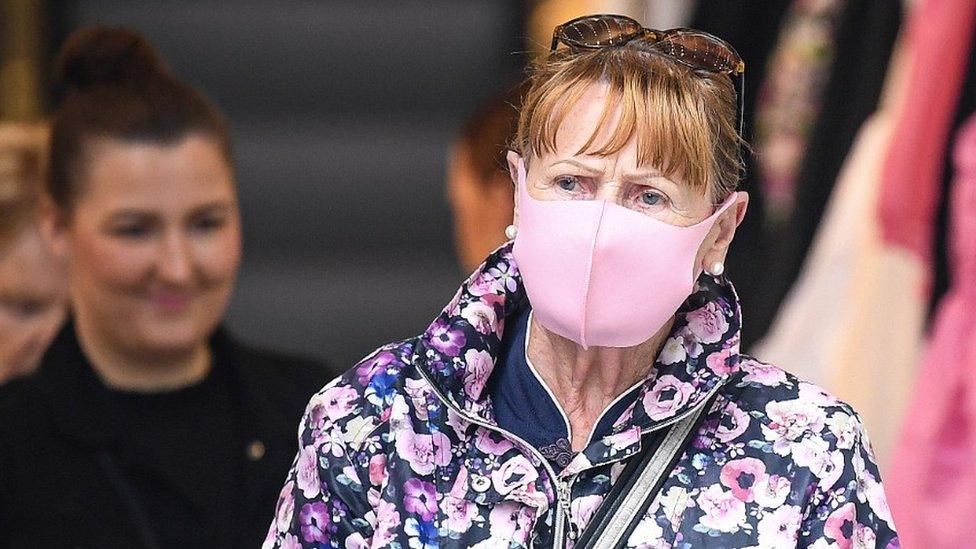Coronavirus: Ministers shift the message on face coverings
- Published

It seems after all that the ministers won't just be asking everyone to use their "common sense" or even just rely on manners to make people cover up.
After weeks of discussion about the relative benefits of covering your face when out and about, ministers are now to confirm on Tuesday that it will be mandatory to cover your face in shops in England - and, like in Scotland seven days ago, expect that change to be brought in in law.
It is quite the shift. At the start of the crisis, the government's scientists suggested that masks could do more harm than good.
There were nerves too about creating sudden demand from the public to get hold of medical grade coverings when there was a worldwide spike in demand as the pandemic took hold.
But more evidence has emerged about how coronavirus can be transmitted through the air.
Politicians are also keen to find ways to make consumers feel more comfortable going back out into the world, as the economy struggles to come alive again.
But things have changed a lot since the start of the lockdown when the government's "stay at home" message was heard loud and clear.
The vast majority of the public stuck to the instruction carefully. Millions tuned into the daily press briefings for the latest information, wanting answers, but wanting guidance too.
The expected decision to go ahead on face coverings comes after a scrappy few days when ministers have given different impressions in different interviews.
Chancellor Rishi Sunak appeared without a mask for the cameras serving food last Wednesday. Eyebrows were raised when he was chatting to customers over their vegan katsu without covering his face.
The Culture Secretary, Oliver Dowden, did mask up when observing Picassos in the Royal Academy the next day.
Then the prime minister donned his two-quid mask in a photocall on Friday.

Boris Johnson wore a face mask in public for the first time last week
But on Sunday, Michael Gove made that call for "common sense", and even on Monday morning, Justice Secretary Robert Buckland was saying coverings should be "mandatory perhaps" - a contradiction if ever there were.
Clarity, for shops in England at least, should come on Tuesday. But you wouldn't be blamed for wondering quite what you are meant to do.
For the government's critics it's another example of ministers playing catch up after allowing confusion to spread.
During the early stages of the Covid crisis the public surprised politicians by being very willing to listen and follow the rules.
In this more complicated phase, any hint of a messy message could make them less likely to comply.
- Published16 March 2022

- Published10 July 2020

- Published10 July 2020

